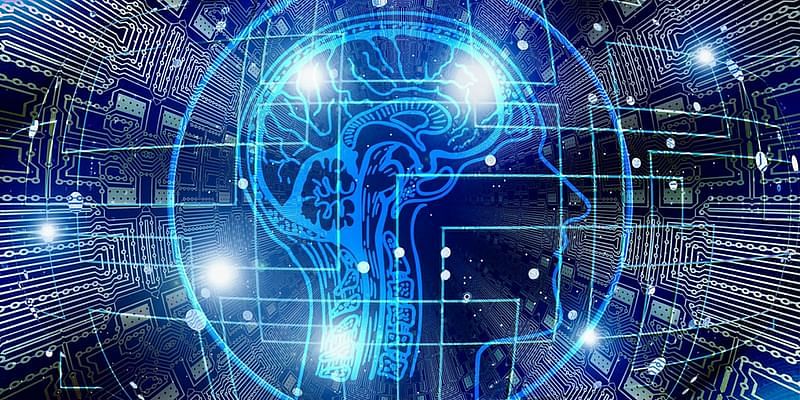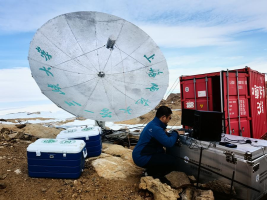Blog Credit: Trupti Thakur
Image Courtesy: Google
Global Partnership On Artificial Intelligence – GPAI
G7 Digital & Tech Ministers met within the Hiroshima Artificial Intelligence (AI) Process, in a stride to foster international cooperation in the realm of AI. They issued a statement emphasizing their dedication to collaborative initiatives on generative AI and common policy priorities.
This commitment is further fortified by the ministers’ intent to collaborate with prominent international organizations and actors, among them the Global Partnership on Artificial Intelligence (GPAI). GPAI, at the vanguard of global AI initiatives, is ready to join forces with these distinguished leaders in the pursuit of policy discussions deeply rooted in empirical insights.
GPAI eagerly anticipates the continuation of its longstanding partnership with the OECD and other IGOs. This collaboration, exemplified by initiatives like the Global Challenge to Build Trust in the Age of Generative AI, jointly launched by GPAI and OECD.AI, builds on harnessing AI’s boundless possibilities while ensuring ethical, responsible, and trustworthy implementation.
The Global Partnership on Artificial Intelligence (GPAI, pronounced “gee-pay”) is an international initiative established to guide the responsible development and use of artificial intelligence (AI) in a manner that respects human rights and the shared democratic values of its members. The partnership was first proposed by Canada and France at the 2018 44th G7 summit, and officially launched in June 2020. GPAI is hosted by the Organisation for Economic Co-operation and Development (OECD).
GPAI seeks to bridge the gap between theory and practice by supporting research and applied activities in areas that are directly relevant to policymakers in the realm of AI. It brings together experts from industry, civil society, governments, and academia to collaborate on the challenges and opportunities presented by artificial intelligence.
History
The Global Partnership on Artificial Intelligence was announced on the margins of the 2018 G7 Summit by Canadian Prime Minister Justin Trudeau and French President Emmanuel Macron. It officially launched on June 15, 2020 with fifteen founding members: Australia, Canada, France, Germany, India, Italy, Japan, Mexico, New Zealand, the Republic of Korea, Singapore, Slovenia, the United Kingdom, the United States, and the European Union.
The Organisation for Economic Co-operation and Development (OECD) hosts a dedicated secretariat to support GPAI’s governing bodies and activities. UNESCO joined the partnership in December 2020 as an observer. On November 11, 2021, Czechia, Israel and few more EU countries also joined the GPAI, bringing the total membership to 25 countries. Since the November 2022 summit, the list of members stands at 29.
Austria, Chile, Finland, Malaysia, Norway, Slovakia and Switzerland were invited. The seven, however, are pending membership approval.
Organization
GPAI’s experts collaborate across several Working Groups themes: Responsible AI (including an ad-hoc subgroup on AI and Pandemic Response), Data Governance, Future of Work, and Innovation & Commercialization. GPAI’s Working Groups are supported by two Centres of Expertise: one in Montreal that supports the first two Working Groups, and one in Paris that supports the latter two.[3] It also has a Steering Committee, the elected chair of which has also been to date elected chair of the Multi Stakeholder Group (MEG). These chairs have been:
- Jordan Zed and Baroness Joanna Shields (Shields, MEG chair; 2020-2021),
- Joanna Shields and Renaud Vedel (Shields, MEG chair; 2021-2022),
- Yoichi Iida and Inma Martinez (Martinez, MEG chair; 2023-2024)
GPAI has a rotating presidency and host (much like the G7). The presidencies to date have been:
- Canada (2020)
- France (2021)
- Japan (2022)
- India (2023)
The Global Partnership on Artificial Intelligence or GPAI (Gee-Pay) is an international and multistakeholder initiative to guide the responsible development and use of artificial intelligence consistent with human rights, fundamental freedoms, and shared democratic values, as reflected in the OECD Recommendation on AI.
Launched in June 2020 with 15 members, GPAI is the fruition of an idea developed within the G7. Today, GPAI’s 25 members are Australia, Belgium, Brazil, Canada, Czech Republic, Denmark, France, Germany, India, Ireland, Israel, Italy, Japan, Mexico, the Netherlands, New Zealand, Poland, the Republic of Korea, Singapore, Slovenia, Spain, Sweden, the United Kingdom, the United States and the European Union.
How the GPAI works
With its Secretariat hosted at the OECD, the GPAI brings together experts from industry, government, civil society, and academia, to advance cutting-edge research and pilot projects on AI priorities.
The structure of GPAI illustrated in the figure below includes a GPAI Council, a Steering Committee, and the Multistakeholder Experts Group Plenary (MEG), which includes a number of Working Groups. The GPAI Secretariat supports the GPAI Council and the GPAI Steering Committee. GPAI’s Centres of Expertise (one in Montreal and one in Paris) support the MEG and its working groups.
Work of GPAI experts is presented in reports and during sessions at the GPAI Summit each year. Most recently, the second annual GPAI Summit was hosted by France on 11-12 November 2021, during which the Multistakeholder Experts Group Plenary Chair presented French President Emmanuel Macron with the GPAI Expert report as France takes over as Lead Council Chair for the year ahead.
Blog By: Trupti Thakur

22
DecGlobal Partnership On Artificial Intelligence – GPAI
Dec 22, 2023Recent Blog
World’s First 3D Printed Train StationApr 11, 2025
The Three Gorges Antarctic Eye TelescopeApr 09, 2025
When Monuments Delisted !!Apr 08, 2025
The Frontier Technologies Readiness IndexApr 07, 2025
Vikram 3201 & Kalpana 3201Apr 04, 2025




